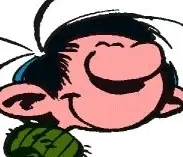So for me, as I stumble and bumble my way through learning French (mostly through DuoLingo, hey), I’m often thinking about this issue.
Now-- on the surface of things, Modern English is almost exclusively comprised of German & French, and almost every word in these sentences are specific examples of such in terms of direct etymology. Which is a big part of why I’ve typically regarded French & German as my sibling languages. It’s a nice, bright thought, anyway!
Let’s take the modern English word “fight”-- WP claims:
From Middle English fighten, from Old English feohtan (“to fight, combat, strive”), from Proto-West Germanic *fehtan, from Proto-Germanic *fehtaną (“to comb, tease, shear, struggle with”), from Proto-Indo-European *peḱ- (“to comb, shear”).
My point is that there’s so many ways to run with that over time… in any language whatsoever! Indeed, IIRC there was a “fisten” variation which meant an entirely different thing in earlier German.
But, “shear?” Yes, yes back in my schoolyard days, I wanted to shear my opponent like a little lost lamb, but… I don’t think that’s right.
So here’s my point, assuming you’ve lasted this far. Modern German in fact split from modern English maybe around ~~800AD? And Modern French, around… perhaps slightly earlier than the Norman Conquest (1066), meaning that even though Modern English is absolutely PACKED full of French & German pronyms, we can’t just assume they mean the same thing, anymore, as with the examples above.
It sort of breaks my heart, but it’s just reality, non?


Exactly.
My mother-tongue is officially Castellano, followed by French.
Unfortunately, as a Peace-Corps baby and child of divorce, I never really had a chance to ‘lock-in’ my first two languages.
But also, just-- I absolutely adore BD, followed by Euro comics. And French is the language of BD, so… you know… let Mohammed get his arse over to the Mountain, given a choice.
I didn’t know, are you already on [email protected] ?
I am NOW.
Which reminds me-- I’ve fucked-up all the links, didn’t I?